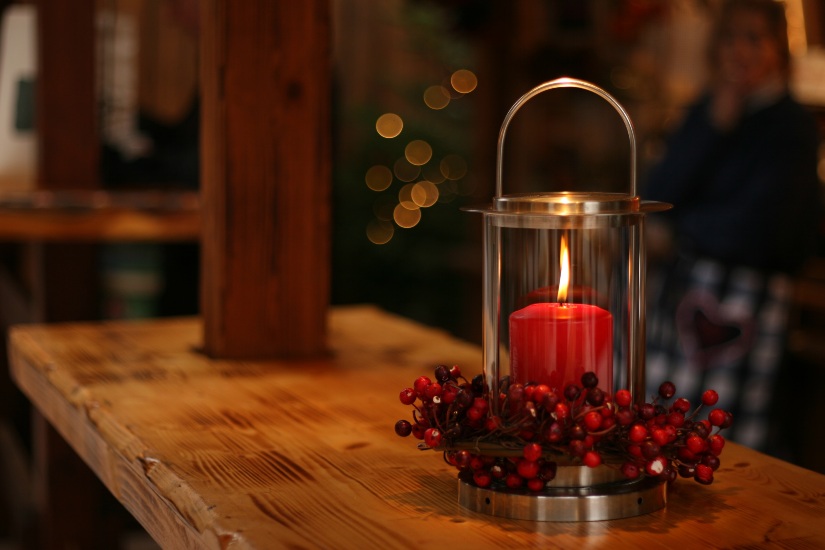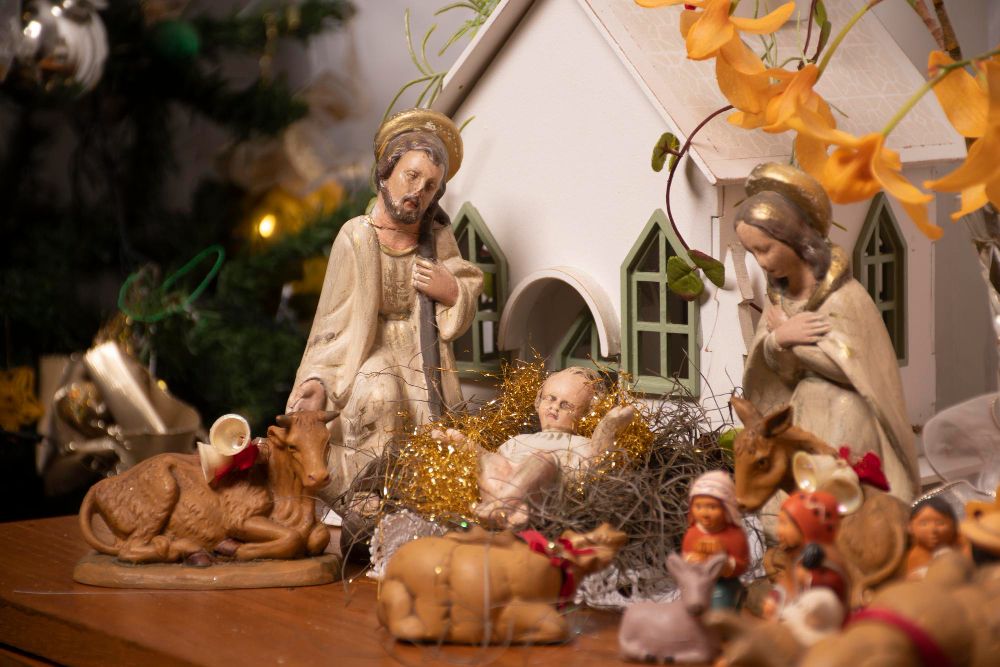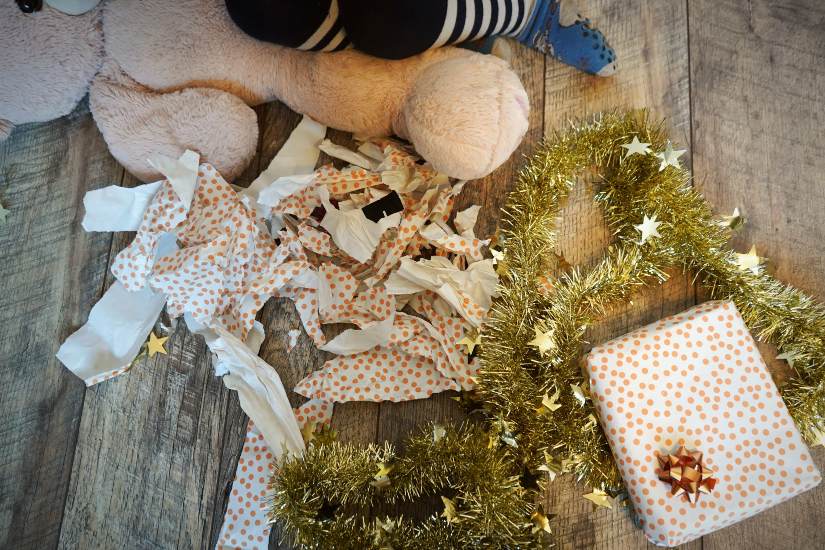Christmas in Spain is full of excitement and tradition.
During these holidays, we gather with family and friends for lunch and dinner, to visit the decorated and illuminated streets of our towns and cities and, of course, to do the typical Christmas shopping.
In this article, we will show you which are the Christmas traditions in Spain and all the important celebrations.
Learn everything you need to know about our Spanish school in Spain!
When is Christmas in Spain? Important days
Christmas in Spain is set by the religious-Catholic calendar.
The celebrations begin on December 24th, Christmas Eve ( celebrating the birth of Jesus), and end on January 6th, Three Kings Day, which happens during the school vacations.
Christmas Eve
Christmas Eve is the most significant night in Spain, known as ‘Nochebuena.’ Families gather for a grand feast featuring traditional dishes such as roast lamb, seafood, and turrón (nougat). After dinner, many attend the Midnight Mass (Misa del Gallo), celebrating the birth of Jesus.
Christmas Day
Unlike other countries, Christmas Day in Spain is relatively quiet. Families enjoy a relaxed day with loved ones, often indulging in leftovers from Nochebuena. Gifts are exchanged modestly, as the primary day for presents is yet to come.
New Year’s Eve
Spaniards welcome the New Year by eating twelve grapes at the stroke of midnight. Each grape represents good luck for one month of the upcoming year.
Three Kings’ Day
On January 6th, children receive gifts brought by the Three Wise Men. Parades are held on the eve, featuring floats and candies thrown to crowds.
It is usual to spend December 24th and 25th with the family, while on December 31st and January 1st many people get together with friends or take a short trip to welcome the new year.
As for the Three Kings’ Day, it is a magical and exciting holiday for children, and the parades and processions during the afternoon and evening of the 5th are very popular.

Most popular Spanish Christmas traditions
Christmas “El Gordo”
Although the official dates of Christmas in Spain are from December 24 to January 6, the truth is that the festive spirit takes over our homes a few weeks before.
In fact, during the Constitution and Immaculate Conception festivities (December 6 and 8, respectively) it is common to decorate houses with Christmas cribs, trees, lights or garlands.
Additionally, on December 22 there is a lottery draw known as “El Gordo”, which is considered one of the oldest lottery draws in the world and distributes many prizes.
The Christmas crib
One of the most deeply established Christmas traditions in Spain are the Christmas cribs or nativity scenes, which are placed in almost every home and can also be seen in stores, streets, town halls, shopping malls and churches.
There are cribs and nativity scenes of different styles and sizes (some of them are “life-size”) and all of them include, at least, the figures of Mary, Joseph, the baby Jesus, the three Wise Men (Melchior, Gaspar and Balthazar), a mule and an ox.

Shepherds are also very common.
In some regions of the Spanish Levante, such as the Valencian Community or Catalonia, the figure of the “caganer” is added, which is symbolic and adds a touch of humor to the set.
Take a look at the festivities in Spain that you can’t miss.
Christmas carols
During Christmas in Spain, Christmas carols are sung, songs with catchy and very cheerful melodies, with a strong religious character.
Some of the most popular carols are “Los peces en el río”, “25 de diciembre”, “Campana sobre campana”, “La marimorena”, “Ay del chiquirritín” or “Hacia Belén va una burra”.
Back in the day, children used to sing Christmas carols on the streets and in the houses of their family members, neighbors or friends and asked for money in return, something known as “el aguinaldo” (the Christmas bonus).
The ” Misa del Gallo” (Midnight Mass)
Another one of the oldest Spanish Christmas traditions is the “Misa del Gallo” (Midnight Mass).
This religious celebration takes place in churches on December 24th, at midnight, and represents the birth of God.
What are the typical Spanish Christmas meals?
As for the typical Spanish Christmas meals, they vary a lot depending on each family or autonomous community.
During the Christmas Eve dinner and Christmas lunch, it is traditional to eat stuffed turkey and roast meat (lamb, capon or piglet) or fish (monkfish or cod), as well as canapés, ham and seafood ( shrimp, lobster, etc.).
In Valencia, on Christmas Day, the “Puchero” is eaten with meat balls.
On the occasion of these special dates, cava and cider to toast, as well as some typical sweets such as polvorones, turrones or peladillas, and homemade desserts such as sweet potato cakes (typical of Valencia), mantecados or pestiños, cannot be missing on the tables.
On December 26th, in some regions of our country, San Esteban (also called “Second Christmas Day”) is celebrated.
The typical meal of this family day is cannelloni, which are made with the leftovers of the Christmas stew with the intention of not wasting the leftovers of the previous meals.
Another well-established Christmas tradition in Spain is to eat 12 grapes at midnight from December 31st to January 1st, following the rhythm of the ringing of the Bells (Campanadas).
After eating the «lucky grapes», people toast with champagne, make wishes and celebrate the New Year with all their loved ones.
You may be interested in: Typical Spanish winter dishes.

When are Christmas gifts distributed in Spain? Santa Claus and the Three Kings
Gift-giving is an essential part of Christmas celebrations in Spain. Families exchange presents as a way to express love and appreciation during the holiday season. However, unlike in Anglo-Saxon cultures, gifts in Spain can be received on two different dates, depending on family traditions.
Traditional Spanish Christmas Gifts
- Every family member receives a gift during this festive season.
- Popular presents include perfumes, handbags, wallets, belts, gloves, and scarves.
- Many families also exchange Christmas-themed sweaters, ties, socks, and matching pajamas.
- Bottles of wine, liquor, bouquets of flowers, books, and electronic devices are also common choices.
- More people are now opting for experiential gifts like gastronomic experiences, cultural getaways, or trips.
- Looking for a unique gift idea? Discover our one-day guided tours from Valencia.
Christmas Gifts for Children: Santa Claus and the Three Kings
Children are the true protagonists of Christmas in Spain, eagerly awaiting the arrival of magical gift-bringers.
- Most presents for children consist of games and toys brought by Santa Claus or the Three Kings.
- In Spain, gifts are traditionally opened on two different dates:
- December 25th (Christmas Day): Families who follow Santa Claus’ tradition open their gifts in the morning.
- January 6th (Three Kings’ Day): Many Spanish families wait until this day, when the Three Wise Men deliver presents overnight before returning to the East.
No matter the date, Christmas in Spain is a time of joy, surprises, and treasured family moments!
How is Christmas celebrated in Spain?
At Españolé, many of our students come to study Spanish in our country with the intention of getting to know and experience all of our traditions, customs and celebrations.
If you are thinking about studying our language but in a totally different way from what you are used to, at Españolé we give you the opportunity to choose an intensive Spanish course in Valencia or one of our private Spanish classes and live a new experience that you will never forget.
We offer housing options for foreign students in Valencia so you can have a pleasant and peaceful stay, and not worry about anything.
We are waiting for you!
